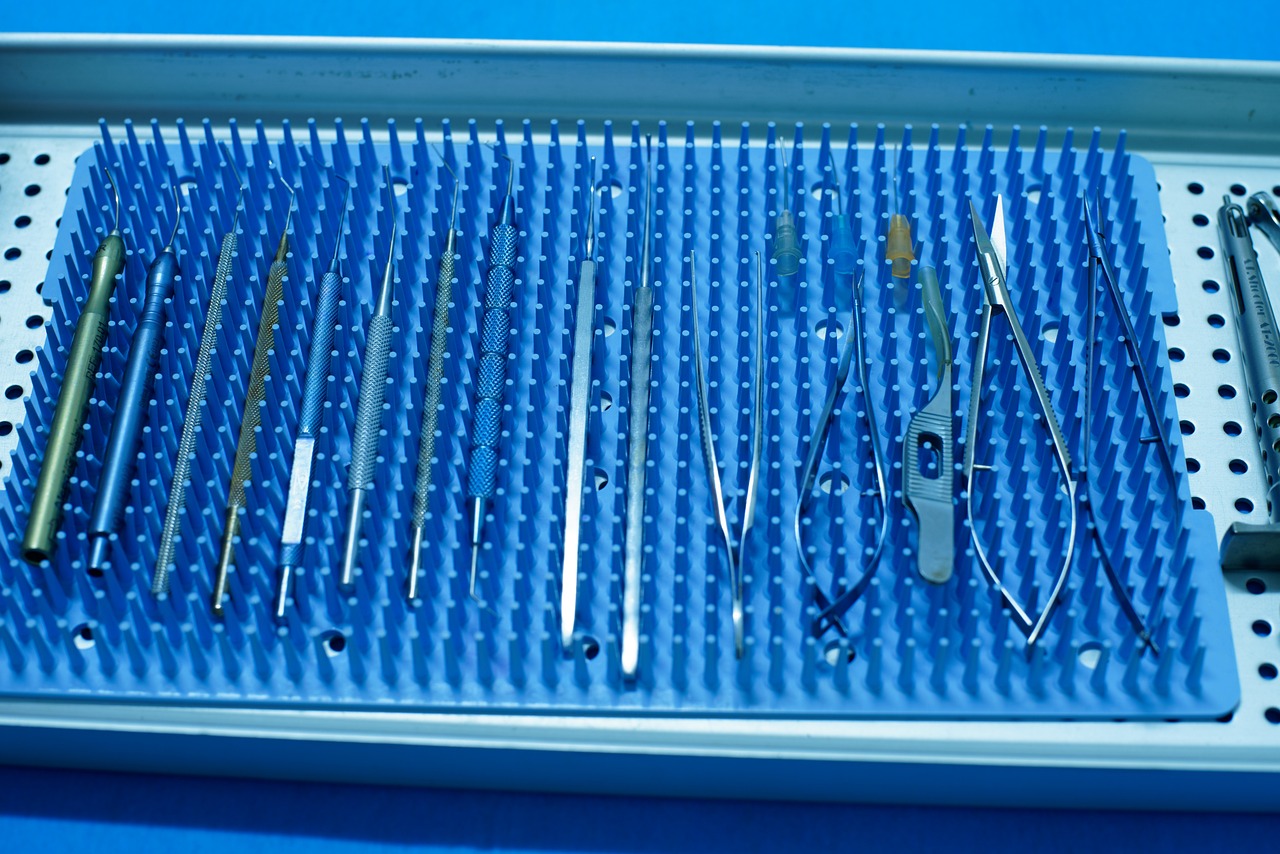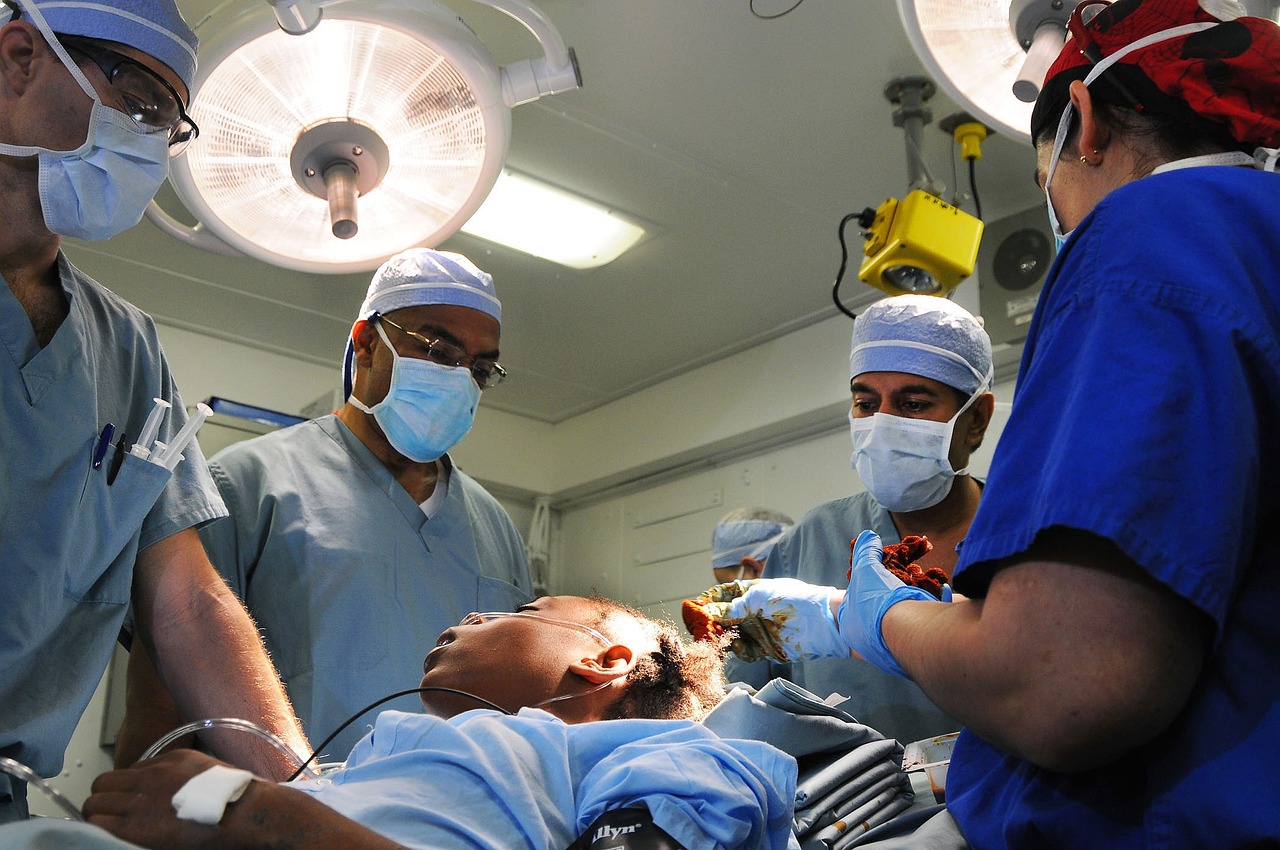The Safety of Plastic Surgery: What You Need to Consider?
When it comes to enhancing your appearance, plastic surgery can feel like a double-edged sword. On one hand, it offers the promise of transformation and confidence; on the other, it comes with a set of risks that can be daunting. So, how do you navigate this complex landscape? Understanding the safety of plastic surgery is essential, not just for your peace of mind but also for ensuring that you achieve the results you desire. In this article, we’ll dive deep into the various aspects of plastic surgery safety, from the inherent risks to the importance of selecting a qualified surgeon.
Let’s face it: any surgical procedure carries risks. Plastic surgery is no exception. Complications can arise from anesthesia, infections, or even unexpected reactions during the healing process. It’s crucial to be aware of these potential pitfalls. For instance, did you know that some patients experience prolonged swelling or scarring, which can lead to dissatisfaction with their results? By understanding these risks, you can make informed decisions about whether to proceed with a procedure. It's like preparing for a long road trip; you wouldn't set out without checking the weather or your vehicle's condition, right?
One of the most important decisions you’ll make is selecting the right surgeon. Think of your surgeon as your guide on this journey. A board-certified plastic surgeon not only has the necessary training but also adheres to high standards of practice. Researching credentials and experience is vital. You wouldn’t hire a contractor without checking their references, so why would you approach something as significant as plastic surgery any differently? Look for patient reviews and testimonials to get a sense of what others have experienced.
Board certification is a badge of honor in the medical field. It indicates that a surgeon has undergone rigorous training and has met specific criteria. This credential is crucial in ensuring patient safety and surgical success. When you see that board-certified label, it’s like a seal of approval, giving you confidence that your surgeon is qualified to perform the procedure you desire.
Experience is another critical factor in achieving optimal results. Just as you would prefer a seasoned chef over a novice when dining out, the same principle applies to surgery. Understanding a surgeon's specialization and the number of procedures they've performed can offer insight into their expertise. For example, a surgeon who specializes in breast augmentation may have a different skill set than one who focuses on facial reconstruction. The more experienced they are, the more likely they are to handle complications should they arise.
Don’t underestimate the power of patient reviews. Reading about others' experiences can provide valuable perspectives on a surgeon's skills and the overall patient experience. You might find that a particular surgeon excels in bedside manner but may have mixed reviews about surgical outcomes. This information can help you make a well-rounded decision.
Before you go under the knife, a thorough consultation and preoperative assessment are essential. This is your opportunity to ask questions, express concerns, and understand what to expect. It’s like a dress rehearsal before a big performance; you want to make sure everything goes smoothly. A good surgeon will take the time to identify individual risks and ensure that you are well-informed about the procedure and recovery process.
Once the procedure is complete, the journey is far from over. Proper postoperative care is vital for minimizing complications and ensuring a smooth recovery. Following your surgeon's instructions can significantly impact your long-term results and overall satisfaction. It’s like tending to a garden; if you water it and give it sunlight, it will flourish. Neglect it, and you may end up with weeds instead of blooming flowers.
Being aware of potential complications and recognizing early signs can be a game changer. If something feels off, don’t hesitate to reach out to your surgeon. Timely medical attention can improve outcomes and reduce the risk of serious issues. It’s always better to be safe than sorry, right?
Finally, it’s essential to consider the long-term effects of plastic surgery. Will you need revision surgeries down the line? What lifestyle changes might be necessary to maintain your results? These are critical questions to ponder before making your decision. Just like investing in a home, you want to consider how it will hold up in the long run.
- What are the most common risks associated with plastic surgery? Complications can include infection, scarring, and adverse reactions to anesthesia.
- How can I find a qualified plastic surgeon? Look for board certification, experience, and positive patient reviews.
- What should I expect during the recovery process? Recovery varies by procedure, but following your surgeon's aftercare instructions is crucial for a smooth healing process.
- Are there any long-term effects I should be aware of? Yes, consider the possibility of revision surgeries and the need for lifestyle changes to maintain results.

Understanding Plastic Surgery Risks
When it comes to plastic surgery, understanding the risks involved is as crucial as knowing the potential benefits. Just like any other surgical procedure, plastic surgery is not without its complications. Imagine stepping into a world where your appearance can be transformed, but lurking beneath the surface are risks that could lead to unforeseen consequences. These risks can range from minor inconveniences to serious health threats. So, what exactly should you be aware of?
One of the primary risks associated with plastic surgery is complications arising from anesthesia. While anesthesia is a routine part of many surgeries, it's important to note that reactions can vary significantly from person to person. Some individuals may experience adverse effects, which can range from nausea to more severe complications. This is why discussing your medical history with your surgeon is essential. They need to know about any allergies or previous reactions to anesthesia to ensure your safety during the procedure.
Another significant risk is the potential for infection. After a surgical procedure, the body is vulnerable, and if the surgical site is not cared for appropriately, it can lead to infections that complicate recovery. Infections can manifest in various ways, from redness and swelling to fever and discharge. Proper hygiene and following postoperative care instructions are critical in minimizing this risk.
Additionally, scarring is a common concern for many undergoing plastic surgery. While some procedures are designed to minimize scarring, the reality is that every individual heals differently. Factors such as skin type, genetics, and adherence to aftercare can influence the extent of scarring. It's essential to have realistic expectations and understand that while some scars may fade over time, others may remain more prominent.
In summary, the risks associated with plastic surgery are multifaceted. To navigate this complex landscape, it's important to:
- Discuss all concerns and medical history with your surgeon.
- Follow postoperative care instructions meticulously.
- Set realistic expectations regarding outcomes and potential complications.
By being informed and proactive, you can significantly reduce the likelihood of encountering these risks, paving the way for a smoother surgical journey. Remember, knowledge is power, and understanding the risks is the first step toward making an informed decision about your plastic surgery.

Choosing a Qualified Surgeon
When it comes to plastic surgery, one of the most critical decisions you'll ever make is selecting the right surgeon. Imagine you’re about to embark on a thrilling journey, like climbing a mountain. You wouldn’t choose just anyone as your guide, right? The same principle applies here. You want someone who not only knows the terrain but has also navigated it successfully many times before. A qualified surgeon can make all the difference between a smooth ride and a rocky one.
First and foremost, ensure that your surgeon is board-certified. This certification is not just a fancy title; it signifies that the surgeon has undergone rigorous training and adheres to strict standards. Think of it as a stamp of approval from a governing body that verifies their expertise. Without this credential, you might as well be taking a leap of faith off a cliff without a parachute!
Next, delve into the surgeon's experience. You wouldn’t want to be the first person to test a new roller coaster, would you? Similarly, understanding how many procedures a surgeon has performed in their specialty can provide insight into their skill level. For instance, if you’re considering a facelift, find out how many facelifts they’ve completed and what their success rate is. A seasoned surgeon will have a portfolio of before-and-after photos to showcase their work, which can help you visualize potential outcomes.
Moreover, don’t underestimate the power of patient reviews and testimonials. These can be like gold dust, giving you a glimpse into the experiences of others. Reading about someone else's journey can help you gauge not just the surgeon's technical skills but also their bedside manner. Are they approachable? Do they take the time to answer questions? You want a surgeon who treats you like a person, not just another number on their schedule.
In your quest for the perfect surgeon, consider scheduling a consultation. This is your opportunity to ask questions, express concerns, and get a feel for their approach. A good surgeon will welcome your inquiries and provide clear, honest answers. They should also conduct a thorough preoperative assessment to identify any individual risks and ensure that you are well-informed about the procedure and recovery process.
To sum it up, choosing a qualified surgeon is not just about finding someone with a scalpel. It’s about finding a trusted partner in your journey toward transformation. Take the time to do your research, ask the right questions, and make an informed decision. After all, this is your body, and you deserve to feel confident in your choice!
- What qualifications should I look for in a plastic surgeon? Look for board certification, experience in the specific procedure, and positive patient reviews.
- How can I verify a surgeon's credentials? You can check the surgeon's credentials on the website of the American Board of Plastic Surgery or similar organizations.
- What should I expect during the consultation? Expect to discuss your goals, the procedure details, potential risks, and recovery expectations.
- How important is the surgeon's experience? Very important! A surgeon with extensive experience in a specific procedure is more likely to achieve optimal results.

Board Certification Importance
When it comes to plastic surgery, board certification is not just a fancy title; it’s a badge of honor that signifies a surgeon's commitment to excellence. Imagine you're about to embark on a journey that could change your life—wouldn't you want a seasoned captain at the helm? A board-certified plastic surgeon has undergone extensive training and has met rigorous standards set by recognized medical boards. This certification is a crucial indicator that the surgeon possesses not only the technical skills but also the knowledge necessary to handle the complexities of plastic surgery.
But why does this matter so much? Well, the world of plastic surgery is vast and varied, encompassing everything from cosmetic enhancements to reconstructive procedures. Each type requires a specific skill set and a deep understanding of human anatomy. Board certification ensures that the surgeon has specialized training in the field of plastic surgery, which can significantly reduce the risk of complications. In fact, studies have shown that patients who choose board-certified surgeons often experience better outcomes and higher satisfaction rates.
Here are a few key points to consider regarding the importance of board certification:
- Rigorous Training: Board-certified surgeons have completed a comprehensive residency program and have passed extensive examinations.
- Adherence to Standards: These professionals are held to high ethical and professional standards, ensuring that patient safety is always a priority.
- Continued Education: Board-certified surgeons participate in ongoing education to stay updated on the latest techniques and technologies in plastic surgery.
Choosing a board-certified plastic surgeon is a vital step in your surgical journey. It’s like choosing a trusted guide for a thrilling adventure; you want someone who knows the terrain and can navigate any unexpected challenges. So, as you consider your options, don’t hesitate to ask potential surgeons about their board certification status. This simple inquiry can make a world of difference in your experience and outcomes.
In summary, the importance of board certification cannot be overstated. It serves as a reliable indicator of a surgeon’s qualifications and dedication to patient care. By prioritizing board certification in your search for a plastic surgeon, you are taking a significant step toward ensuring a safe and successful surgical experience.
Q1: What does board certification mean?
A1: Board certification indicates that a surgeon has completed extensive training and has passed rigorous examinations in their specialty, ensuring they meet high standards of care.
Q2: How can I verify if my surgeon is board certified?
A2: You can check the credentials of your surgeon through the official website of the American Board of Medical Specialties (ABMS) or similar organizations, which provide verification services.
Q3: Does board certification guarantee a successful surgery?
A3: While board certification is a strong indicator of a surgeon's qualifications, it does not guarantee success. Other factors such as the patient's health, the complexity of the procedure, and adherence to post-operative care also play significant roles in surgical outcomes.

Researching Surgeon Experience
When it comes to plastic surgery, the experience of your surgeon can be the difference between a successful outcome and a regrettable one. Think of it like choosing a pilot for a long flight; you wouldn’t want someone who just got their license, right? Similarly, you want a surgeon who has a wealth of experience under their belt. When researching a plastic surgeon, consider the following factors that can help you gauge their expertise:
First and foremost, look for a surgeon who specializes in the specific procedure you're interested in. Just as a chef might excel in Italian cuisine but struggle with French pastries, a surgeon may be incredibly skilled in breast augmentations but less experienced in facelifts. Therefore, ensure that the surgeon has a solid track record in the exact type of surgery you’re considering. You can often find this information on their professional website or through medical board listings.
Next, consider the number of procedures performed by the surgeon. A high volume of surgeries can indicate a seasoned professional. For instance, if a surgeon has completed hundreds of rhinoplasties, they are likely to have encountered a variety of cases and complications, giving them the experience needed to handle your specific situation. You might ask questions like:
- How many procedures similar to mine have you performed?
- What is your complication rate for this procedure?
- Can you show me before-and-after photos of previous patients?
Additionally, don’t shy away from asking about the surgeon’s education and training. A board-certified plastic surgeon has undergone rigorous training and assessments, which is a strong indicator of their commitment to patient safety and surgical excellence. This certification means they have not only completed medical school but also specialized training in plastic surgery. You can usually verify their credentials through online databases or the American Board of Plastic Surgery’s website.
Lastly, consider the surgeon's involvement in ongoing education and professional development. The field of plastic surgery is constantly evolving, with new techniques and technologies emerging regularly. A surgeon who participates in workshops, conferences, and additional training is likely to be up-to-date with the latest advancements, which can enhance your safety and results. Look for signs of active involvement in professional organizations or contributions to medical research.
In summary, researching a surgeon’s experience is a crucial step in your plastic surgery journey. By focusing on their specialization, the volume of procedures performed, credentials, and commitment to continuing education, you can make a more informed decision. Remember, this is not just about aesthetics; it’s about your health and safety. So take your time, ask the right questions, and choose wisely!

Patient Reviews and Testimonials
When it comes to choosing a plastic surgeon, can be your best friends. Imagine you're about to embark on a journey, and the only way to navigate is by following the footprints left behind by those who have walked the path before you. That's exactly what patient reviews provide—insight into the experiences of others who have undergone similar procedures. They can reveal a lot about a surgeon's skills, bedside manner, and the overall patient experience.
Reading through reviews can feel a bit like flipping through a scrapbook of real-life stories. Some patients share their transformational journeys, detailing not just the physical changes but also the emotional and psychological impact of their surgeries. Others might caution you about the bumps they encountered along the way. This mix of experiences can help you build a more comprehensive understanding of what to expect.
Here are some key aspects to consider when sifting through patient testimonials:
- Consistency: Look for common themes in reviews. If multiple patients mention a surgeon's attention to detail or their ability to make patients feel comfortable, it’s likely a strong indicator of their skills.
- Specificity: Detailed reviews that describe the procedure, recovery process, and results can provide valuable insights. A vague review might not be as helpful.
- Visual Evidence: Many patients share before-and-after photos, which can be incredibly telling. These images can help you gauge the surgeon's aesthetic sense and skill.
However, it's crucial to approach reviews with a critical eye. Not all reviews are created equal, and some may be overly positive or negative due to personal biases. Look for reviews on multiple platforms—such as Google, RealSelf, and social media—to get a balanced view. Consider checking for any patterns in negative reviews, as they might highlight potential red flags.
In addition to online reviews, don’t hesitate to ask the surgeon for references. A reputable surgeon should have no problem connecting you with past patients who can share their experiences firsthand. This direct feedback can be invaluable, allowing you to ask specific questions about the surgeon's techniques, recovery times, and overall satisfaction with the results.
Ultimately, patient reviews and testimonials serve as a bridge between you and your potential surgeon. They can guide your decision-making process and help you feel more confident as you take this significant step towards enhancing your appearance and self-esteem. Remember, choosing to undergo plastic surgery is a personal journey, and informed decisions lead to the best outcomes.
- How can I find reliable patient reviews? Look for reviews on trusted medical websites, social media platforms, and the surgeon's own website.
- What should I do if I find a negative review? Consider the context of the review and look for patterns. One negative review among many positives may not be a deal-breaker.
- Can I contact past patients for their opinions? Yes, reputable surgeons often provide references upon request, allowing you to gain firsthand insights.

Consultation and Preoperative Assessment
When it comes to plastic surgery, the consultation and preoperative assessment are crucial steps that can make or break your experience. Think of this phase as the foundation of a house; without a solid base, everything else is at risk. During this initial meeting, you’ll have the chance to discuss your goals, concerns, and expectations with your surgeon. It’s not just a formality; it’s an opportunity to ensure that you and your surgeon are on the same page.
During the consultation, your surgeon should conduct a comprehensive assessment of your medical history, current health status, and any medications you are taking. This is vital because certain health conditions can increase the risk of complications during and after surgery. For instance, if you have a history of blood clots or are a smoker, your surgeon needs to know to take necessary precautions. You might be wondering, “What exactly should I expect during this assessment?” Here’s a quick rundown:
- Medical History Review: Your surgeon will ask about any past surgeries, chronic illnesses, and family medical history.
- Physical Examination: A thorough examination will help your surgeon understand your body and what changes can realistically be achieved.
- Discussion of Goals: Be prepared to articulate what you hope to achieve through the surgery. Clear communication here is key!
- Risks and Benefits: Your surgeon should explain the potential risks and benefits associated with the procedure you’re considering.
- Recovery Expectations: Understanding what your recovery will entail can help you mentally prepare for the journey ahead.
Moreover, this is the time to ask questions. Don’t hesitate to voice your concerns or clarify doubts. A good surgeon will appreciate your inquisitiveness and will take the time to address each of your questions. Remember, you’re not just a patient; you’re a partner in this journey. This open dialogue can help build trust and ensure that you feel comfortable with your decision.
After the consultation, you should leave with a clearer understanding of what to expect, not just from the surgery itself but also from the recovery process. Your surgeon should provide you with detailed instructions on what to do before the surgery, which may include guidelines on diet, exercise, and any lifestyle changes you may need to make. This preoperative phase is just as important as the surgery itself; it sets the stage for a successful outcome.
In summary, the consultation and preoperative assessment are not just boxes to check off; they are integral components of your plastic surgery journey. By taking this time seriously, you can minimize risks and set yourself up for a smoother, more satisfying experience. So, as you prepare for your consultation, remember: this is your chance to ensure that you are making an informed decision that aligns with your personal goals.
Q: How long does the consultation typically last?
A: Most consultations last anywhere from 30 minutes to an hour, depending on the complexity of the procedure and the number of questions you have.
Q: Will I need any tests before the surgery?
A: Your surgeon may recommend blood tests or imaging studies to assess your health and ensure you are fit for the procedure.
Q: Can I bring someone with me to the consultation?
A: Absolutely! Having a friend or family member can help you feel more comfortable and provide support as you discuss your options.
Q: What should I do if I have concerns after the consultation?
A: Don’t hesitate to reach out to your surgeon’s office with any follow-up questions or concerns you may have; they are there to help!

Postoperative Care and Recovery
After undergoing plastic surgery, the postoperative care phase is crucial for ensuring a smooth recovery and achieving the best possible results. Think of this period as the finishing touch to a masterpiece; without careful attention, the final product may not reflect the artist's vision. During this time, patients must adhere to their surgeon's instructions closely, as these guidelines are designed to minimize complications and promote healing.
One of the first things to consider is the importance of rest. Your body has just gone through a significant procedure, and it needs time to heal. This means getting plenty of sleep and avoiding strenuous activities that could put undue stress on your recovery. Imagine your body as a smartphone that needs to recharge; if you push it too hard, it may not function properly. In addition to rest, keeping the surgical site clean and following any wound care instructions is vital for preventing infections, which can lead to severe complications.
Another essential aspect of postoperative care involves monitoring your symptoms. After surgery, it’s normal to experience some discomfort, swelling, and bruising. However, being aware of any unusual symptoms can make a significant difference in your recovery. For instance, if you notice increased redness, warmth, or discharge at the surgical site, these could be early signs of infection. It’s crucial to contact your surgeon immediately if you experience any of these symptoms, as early intervention can often prevent more serious issues.
Nutrition also plays a pivotal role in recovery. A well-balanced diet rich in vitamins and minerals can support your body's healing process. Foods high in protein, such as chicken, fish, and legumes, can help repair tissues, while fruits and vegetables provide essential nutrients that boost your immune system. Hydration is equally important; drinking plenty of water can help flush out toxins and keep your body functioning optimally. Think of your body as a garden; it needs the right nutrients and water to flourish after a storm.
Lastly, follow-up appointments with your surgeon are critical. These visits allow your surgeon to monitor your healing progress and address any concerns you may have. They can also provide personalized advice tailored to your specific situation, which can be invaluable in ensuring a successful recovery. Remember, the journey doesn’t end when you leave the operating room; it’s just the beginning of a new chapter in your life.
- How long does recovery typically take after plastic surgery? Recovery time varies depending on the type of procedure, but most patients can expect a few weeks of downtime.
- What should I do if I notice unusual symptoms during recovery? Contact your surgeon immediately if you notice any signs of infection or complications.
- Are there specific foods I should eat during recovery? Yes, focus on a balanced diet rich in protein, vitamins, and minerals to support healing.
- When should I schedule my follow-up appointments? Follow-up appointments are usually scheduled within the first week or two after surgery, but your surgeon will provide specific guidance.

Recognizing Complications Early
After undergoing plastic surgery, it's crucial to stay vigilant and aware of your body’s signals. Just like a car owner should keep an eye on warning lights to prevent engine failure, a patient must recognize early signs of complications to ensure a smooth recovery. The sooner you identify potential issues, the better your chances of addressing them before they escalate into serious problems.
Common complications after plastic surgery can include infection, excessive bleeding, and poor wound healing. Each of these can manifest in various ways, and understanding the symptoms can make a significant difference in your recovery journey. For instance, if you notice unusual redness, swelling, or discharge from your surgical site, it could indicate an infection. Similarly, if you experience significant pain that seems to increase rather than decrease, it might be a sign that something is amiss.
Here’s a quick rundown of some symptoms to watch for:
- Redness and Swelling: While some swelling is normal, excessive redness or swelling could indicate a problem.
- Fever: A fever over 101°F may suggest an infection.
- Pain Management: If pain escalates despite medication, consult your surgeon.
- Fluid Accumulation: Any unusual fluid buildup around the surgical site should be reported.
It's also essential to follow your surgeon's postoperative care instructions meticulously. These guidelines are designed to minimize risks and promote healing. For example, avoiding strenuous activities, keeping the surgical area clean, and attending follow-up appointments can significantly impact your recovery. Think of it as following a recipe: if you skip steps or make substitutions, the final dish may not turn out as expected.
Moreover, open communication with your healthcare provider is vital. Don’t hesitate to reach out if something feels off. Remember, your surgeon is your ally in this journey, and they would prefer to hear from you about any concerns rather than letting them fester. Early intervention can often prevent complications from becoming more severe, similar to catching a small leak in your roof before it turns into a flood.
In conclusion, recognizing complications early after plastic surgery is not just about knowing what to look for; it’s about being proactive in your recovery. By staying informed and attentive, you can enhance your healing experience and achieve the best possible results from your surgery.
Q: What should I do if I notice signs of complications?
A: Contact your surgeon immediately to discuss your symptoms and receive guidance on the next steps.
Q: How can I minimize the risk of complications after surgery?
A: Follow all postoperative care instructions provided by your surgeon, avoid strenuous activities, and maintain regular communication with your healthcare team.
Q: Are there specific signs that indicate I need to seek emergency care?
A: Yes, signs such as severe pain, high fever, excessive bleeding, or any sudden changes in your condition should prompt immediate medical attention.

Long-Term Considerations
When contemplating plastic surgery, it's not just the immediate results that matter; you must also think about the long-term implications. Just like planting a tree, you want to ensure that it will grow strong and healthy over the years, rather than just enjoying the shade it provides today. Here are some key factors to keep in mind:
Firstly, the potential need for revision surgeries is something that many people overlook. Depending on the type of procedure, results can change over time due to factors like aging, weight fluctuations, or even the natural healing process. For instance, a breast augmentation might look perfect for the first few years, but as your body changes, you might find yourself considering a revision to maintain that desired appearance. It's essential to be prepared for the possibility that you may not achieve a permanent solution with just one surgery.
Moreover, lifestyle changes can significantly impact the longevity of your results. If you undergo a procedure like liposuction, maintaining a stable weight is crucial. If you return to old habits, such as poor diet and lack of exercise, the results may not last. It's akin to building a beautiful house; if you neglect the foundation, the entire structure can weaken over time. Therefore, adopting a healthy lifestyle post-surgery is vital for preserving your results.
Another long-term consideration is the psychological impact of plastic surgery. While many people report a boost in self-esteem and confidence, others may experience unexpected feelings post-surgery. It's crucial to have realistic expectations and understand that while surgery can enhance your appearance, it might not solve deeper emotional issues. Engaging in counseling or support groups before and after the procedure can be beneficial in navigating these feelings.
Additionally, be aware of the financial commitments associated with plastic surgery. Beyond the initial costs, there may be expenses for follow-up visits, potential revisions, or treatments to maintain results. It's wise to create a budget that considers these factors, much like planning for a long vacation, where you account for travel, accommodation, and daily expenses. Being financially prepared will help you avoid any surprises down the road.
Lastly, maintaining open communication with your surgeon is paramount. Regular check-ins can help monitor your progress and address any concerns that arise over time. Just as you would keep in touch with a friend after a significant life event, staying connected with your healthcare provider ensures that you're both on the same page regarding your long-term health and aesthetic goals.
In conclusion, approaching plastic surgery with a long-term perspective is essential for ensuring that you achieve and maintain the best possible outcomes. By considering the potential for revision surgeries, embracing a healthy lifestyle, being aware of psychological impacts, planning financially, and maintaining communication with your surgeon, you can set yourself up for success. Remember, it's not just about the transformation; it's about how you nurture that change over time.
- What are the most common complications after plastic surgery? Common complications can include infection, scarring, and anesthesia-related issues.
- How long does recovery typically take? Recovery times vary by procedure but generally range from a few days to several weeks.
- Will I need to follow a specific diet after surgery? Yes, following a balanced diet can aid in recovery and help maintain your results.
- How can I prepare for my consultation with a surgeon? Make a list of questions, discuss your goals, and be open about your medical history.
- Is plastic surgery covered by insurance? Most cosmetic procedures are not covered, but reconstructive surgeries may be eligible for coverage.
Frequently Asked Questions
- What are the common risks associated with plastic surgery?
Plastic surgery, like any surgical procedure, carries certain risks. These can include complications from anesthesia, infections, excessive bleeding, and scarring. It’s essential to have a clear understanding of these risks before deciding to undergo surgery.
- How do I choose a qualified plastic surgeon?
Choosing a qualified plastic surgeon is crucial for your safety and the success of the procedure. Look for board certification, which indicates rigorous training and adherence to high standards. Additionally, researching their experience, specialization, and reading patient reviews can guide you in making an informed choice.
- Why is board certification important?
Board certification is vital as it demonstrates that a surgeon has completed extensive training and meets specific standards in their field. This credential can provide peace of mind, knowing that your surgeon is qualified to perform the procedure safely and effectively.
- What should I expect during the consultation?
During the consultation, your surgeon will assess your medical history, discuss your goals, and explain the procedure in detail. This is your opportunity to ask questions and express any concerns, ensuring you fully understand the process before moving forward.
- How can I ensure a smooth recovery after surgery?
Proper postoperative care is crucial for a successful recovery. Follow your surgeon's instructions diligently, which may include rest, medication, and follow-up appointments. Staying informed about your recovery process can significantly impact your long-term results.
- What complications should I watch for after surgery?
Being aware of potential complications is key to a successful recovery. Look out for signs such as unusual swelling, persistent pain, or fever. If you notice any concerning symptoms, contact your surgeon immediately to address the issue promptly.
- Are there long-term considerations I should keep in mind?
Yes, it’s essential to consider the long-term effects of plastic surgery. This includes the possibility of needing revision surgeries in the future or making lifestyle changes to maintain results. Discuss these aspects with your surgeon during the consultation to ensure you have realistic expectations.



















